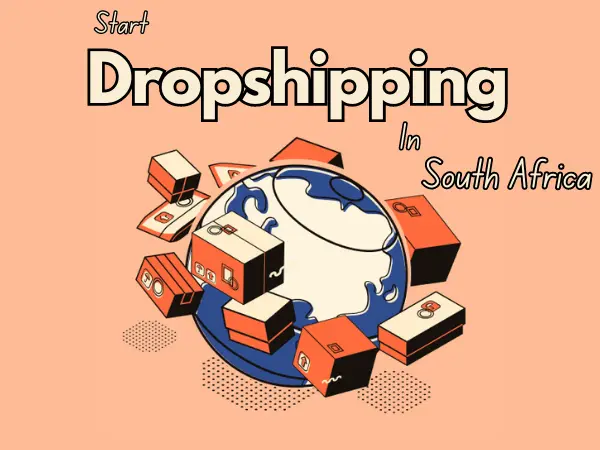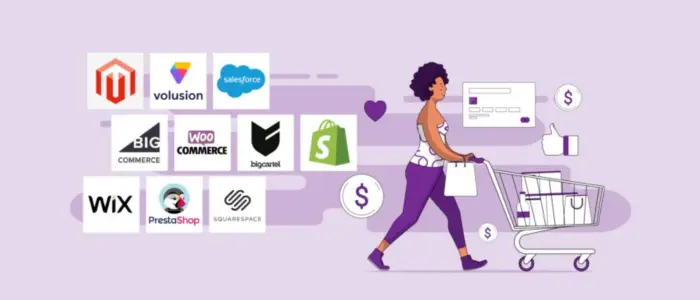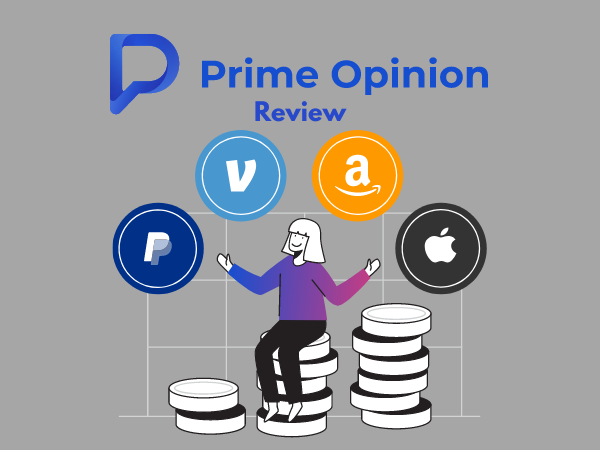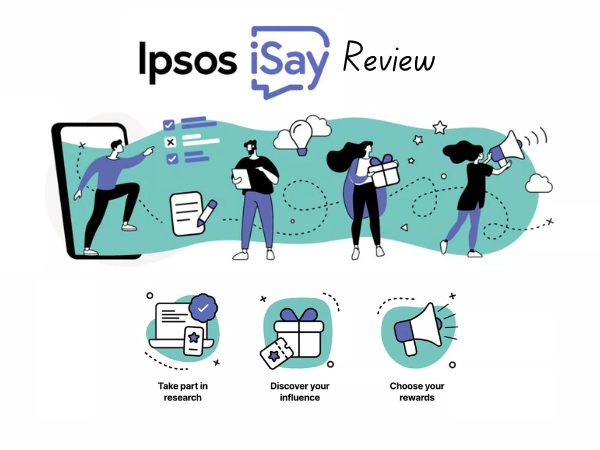At this time of writing it is estimated that about 20% of sales happen online, since 2020 the market growth of online shopping has been growing exponentially with an estimated of reach $7 trillion by 2025. Why not be one of the people who are going to get a share or cut off this $7 trillion, Yes it’s possible even if you are living in South Africa by harnessing the power of dropshipping you can start dropshipping in South Africa.

This guide will take you through the step-by-step process of starting a dropshipping business in South Africa, where the e-commerce landscape is rapidly evolving. We’ll cover everything from market research and niche selection to legal considerations and scaling your business for success.
What Is Dropshipping Simplified
Dropshipping is a way of doing business where you don’t need to keep products in stock. Instead, when you receive an order from a customer, you purchase the item from a third party (like a wholesaler or manufacturer) and have them ship it directly to the customer. It’s usually automated not done manually.
This means you don’t have to worry about storing inventory or handling the shipping process yourself. It can be a way to start an online store with lower upfront costs and less logistical hassle, but it also comes with its own challenges, like finding reliable suppliers and managing customer expectations.
Dropshipping Niches
Before diving into the dropshipping business, it’s essential to conduct thorough market research and choose the right niche. Here are some of the most popular niches to do
- Fitness and Health Products
- Beauty and Skincare
- Home Decor
- Electronics Accessories
- Fashion and Apparel
- Pet Supplies
- Baby and Maternity Products
- Outdoor and Camping Gear
- Kitchen Gadgets and Accessories
- Eco-Friendly Products
- Jewelry and Accessories
- Tech Gadgets
- Travel Accessories
- Home Office Supplies
- Hobby and Craft Supplies
For example, tech products are in high demand worldwide, making it a promising niche to explore. Begin by conducting thorough market research to understand the specific tech products that resonate with the local audience. For instance, smartphones, smart home devices, and accessories like wireless earbuds could be potential winners.
Identify gaps in the market and niches with untapped potential to set yourself up for success. While there are quite more dropshippers for iPhones you can take a different route and do Google Pixel only dropshipping.
South African Dropshipping Suppliers
Seek reliable dropshipping partners known for quality products, efficient shipping, and responsive customer service. In the tech sector, consider working with established brands or distributors that offer genuine products and warranties. Here is the list of reliable South African suppliers for Electronics, Fragrances, Cleaning, Clothing, and Pet Products
| 🥇Supplier | 🎉Niche | 🤷♂️Description |
|---|---|---|
| #1 Mens Republic | 🪫Electronics | Leading dropshipping supplier in South Africa specializing in gadgets, smartphone accessories, RC toys, novelties, and gifts for men. |
| #2 The Scents | ♨️Fragrances | Wholesale supplier of designer fragrances and beauty products for men and women. Offers tracking information for shipping and accepts major credit cards. |
| #3 ParcelNinja | 🛒Warehouse Solutions | Provides smart warehouse solutions for dropshippers, including stock storage, scheduling deliveries, and real-time tracking from shelf to customer’s door. |
| #4 Neat Freak | 🧼Cleaning Supplies | Focuses on supplying dropshipping stores with home organizing tools, cleaning supplies, office accessories, and storage products. |
| #5 Dropstore | 🎁Variety of Products | Streamlines product sourcing, enabling dropshippers to find trending products, add them to their stores, and ship directly to customers. |
| #6 Gadgetgyz | 🪫Electronics | Offers a range of Android phones, accessories, smartwatches, and gadgets, with 24/7 customer support for dropshippers. |
| #6 Mantality | 📱Gadgets and Electronics | Supplies gadgets, gear, tech, and electronics across various categories, targeting tech enthusiasts. |
| #7 Third Wave Distribution | 💻Electronics | Provides a selection of over 400 electronics products with delivery within 2-4 business days. |
| #8 Calasca | 🪝Variety of Products | Supplies homeware, toys, kitchen products, jewelry, and beauty items. Based in Sandton, South Africa. |
| #9 Planet54 | 🛍️Clothing and Tech | Offers footwear, clothing, accessories, and tech products. Provides a reseller entrepreneurship program and can be sourced through Dropstore. |
| #10 Marijuanasa | 👔Cannabis Products | Specializes in cannabis seeds and growing essentials, delivering to South Africa, UK, Namibia, Swaziland, and Lesotho. |
| #11 Shopstar | 🛒Variety of Products | Functions as a dropshipping supplier and platform for creating online stores. |
| #12 Print A Trend | 🖨️Print-on-Demand Products | Supplies personalized swimwear, mugs, t-shirts, and more through print-on-demand services. |
| #13 Cosmic Pets | 🐶Pet Products | Supplies pet products to retailers, including pet shops, veterinary clinics, and pet care professionals, within 5 days of order placement. |
You must thoroughly assess the market demand for the products you plan to offer, understand your target audience, and develop a solid business plan are essential steps for success.
eCommerce Platforms for Dropshipping In South Africa
Choose an e-commerce platform that aligns with your needs and offers customizable templates. Craft compelling product descriptions, utilize high-resolution images, and ensure seamless navigation. Here are some of the popular and most used eCommerce platforms for dropshipping

- Shopify
- Wix
- BigCommerce
- Adobe Commerce (formerly Magento)
- WooCommerce
- Squarespace
- Big Cartel
- Weebly
- 3dcart
- Volusion
- OpenCart
- ecwid
- Volusion eCommerce
For instance, if you’re selling smartphones, provide detailed specifications and clear visuals that highlight key features. Remember that the best platform for you depends on your business needs, technical expertise, and budget. Each platform has its own strengths and features that might suit different types of dropshipping businesses.
Get dropshipping Traffic & Sales
Tech products appeal to a tech-savvy audience that’s often active on Youtube and online forums. While fashion enthusiasts tend to gravitate to Instagram, knowing which social media your audience uses the most is very crucial. Develop a digital marketing strategy that includes social media campaigns, nich-focused content creation, and SEO optimization. Leverage platforms like Instagram, TikTok, and YouTube to showcase product demos, unboxing videos, and reviews to capture your audience’s attention.
Is Dropshipping Legal In South Africa
Yes, dropshipping is legal in South Africa. Dropshipping is a legitimate business model where the retailer (you) does not keep the products in stock but instead transfers customer orders and shipment details to either the manufacturer, another retailer, or a wholesaler, who then ships the products directly to the customer
However, while dropshipping itself is legal, there are several legal and regulatory considerations you need to be aware of when starting a dropshipping business in South Africa:
- Business Registration:
- You need to legally register your business, whether as a sole proprietorship, partnership, or company, depending on your chosen business structure.
- Taxation:
- You are required to pay taxes on your business income. This includes income tax and possibly Value Added Tax (VAT) if your turnover exceeds the threshold set by South African Revenue Service (SARS).
- Consumer Protection:
- You must comply with South Africa’s consumer protection laws, which include providing accurate product descriptions, honoring warranties and guarantees, and offering clear return and refund policies.
- Advertising Standards:
- Ensure that your advertising is honest and accurate. Avoid making false claims about products or misleading customers.
- Privacy and Data Protection:
- Protect customer data and privacy according to relevant laws and regulations, such as the Protection of Personal Information Act (POPIA).
- Customs and Import Regulations:
- If you’re sourcing products from international suppliers, be aware of customs duties, import regulations, and potential delays that might affect the shipping process.
- Intellectual Property:
- Respect intellectual property rights. Make sure you have the right to sell the products you’re advertising and that you’re not infringing on any trademarks or copyrights.
- Terms and Conditions:
- Draft clear and comprehensive terms and conditions for your online store. These should cover aspects like payment, shipping, returns, and dispute resolution.
- Delivery and Fulfillment:
- Ensure that you clearly communicate shipping times and expectations to your customers. Timely delivery and accurate fulfillment are crucial to maintaining customer satisfaction.
- Currency Conversion:
- If you’re dealing with international suppliers and customers, be aware of currency conversion rates and potential fluctuations.
Conclusion
With dedication, innovation, and a customer-centric approach, you’ll be well on your way to capturing a significant slice of the $7 trillion market share. Always try to stay ahead of the curve by monitoring emerging technologies such as AI, IoT devices, and eco-friendly tech products. Adapt your dropshipping offerings to align with these trends.
If you don’t have enough money to start your dropshipping business since dedicated eCommerce like Shopify requires a monthly. You can start by doing side hustles, I recommend doing surveys here are the best survey websites to try.










One Comment